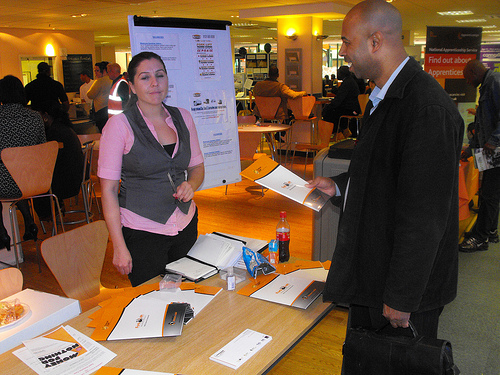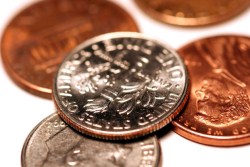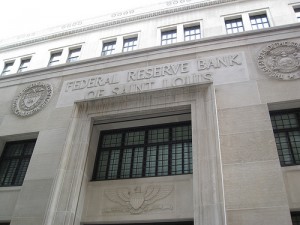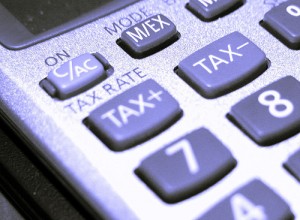Posted on 04 April 2011. Tags: department of labor, economic crisis, economist, fraction, jobless rate, nonfarm payroll, recession, unemployment rate, wall street, wall street investors
 Employment rate in the United States grew steadily for the second straight month in March, as the unemployment rate dropped at 8.8 percent. The shift in trends in the labor market is likely to help the United States recover from economic crisis in the past few years.
Employment rate in the United States grew steadily for the second straight month in March, as the unemployment rate dropped at 8.8 percent. The shift in trends in the labor market is likely to help the United States recover from economic crisis in the past few years.
The Department of Labor said Friday that the nonfarm payroll has increased by 216,000 last month. The gain was pre-empted by 194,000 new positions that opened February 2011.
As a result of the very favorable pace of job growth lately, the unemployment rate has been pulled down ever since November 2011. Reports said that the decrease from November to March is the greatest decline since 1984.
An independent result also indicated that there is an elevation in factory activity March this year. This means there would be more jobs in the industrial area in the United States.
However, economist Julia Coronado said that although these reports tell us that our economy is slowly regaining strength, it also means that the United States has a very long way to go in terms of employment.
The U.S. economy is clearly gaining momentum but it has only recovered a small fraction of what it has lost during the recession. There are said to be 8 million jobs lost when a recession hit the U.S.
Many Wall Street investors are more than pleased with the reports. They also cheered the modest augment to the U.S government bond and the strengthening U.S. dollar exchange rate against the Japanese yen.
Posted in Business
Posted on 27 February 2011. Tags: 401 k, 401k plans, earning power, economic stress, fidelity investments, free money, quarters, recession, report also said that, retirement
 The recession has reminded Americans that they need to be saving for their retirement future. Average 401(k) balances are now hitting a 10 year high as the recession is winding down and allowing Americans to contribute more.
The recession has reminded Americans that they need to be saving for their retirement future. Average 401(k) balances are now hitting a 10 year high as the recession is winding down and allowing Americans to contribute more.
As 2010 came to a close the average balance had reached $71,500. That is a jump of 11.5% from 2009 when the average was $64,200. This is pulled strait from a report by Fidelity Investments released on Thursday.
401(k) have become the most popular way to save up for retirement. They have great earning power because the allow workers to deffer taxes on growth until they begin to withdrawal the money after retirement.
The average American taking advantage of 401k plans puts about 8.2% of their income into this investment vehicle. According to Fidelity, 51 million plus workers are funneling money into their 401(k).
With the recent economic stress, more people are thinking about their future. The report sites that Americans have increased contributions for the last 7 quarters in a row. This latest quarter has seen 6.1% of workers increase the amount contributed with only 3.0% of workers lowing the amount contributed.
The report also said that at the height of the recession, the number of employers reducing or getting rid of matching programs reached 8%. Contribution matching is a program that many employers have in place to encourage use of their 401(k). This makes it easier for employees to justify the savings since they are getting “free” money for retirement from their employer.
About 50% of those companies have told Fidelity that they are planning to restart those programs as the economy improves, some have already put the plans back in place.
Posted in Featured News, Finance
Posted on 15 February 2011. Tags: air flights, american airlines, business companies, car rental companies, corporate retreats, marriot, outflow, recession, travel expenditures, travel managers
 American companies are expecting a 5-percent increase in their total travel expenditures this year. The rise is twice the growth rate last year just after a two-year decline in business. This shows a positive sign in the economy, thus perking up airlines, hotels, as well as car-rental companies.
American companies are expecting a 5-percent increase in their total travel expenditures this year. The rise is twice the growth rate last year just after a two-year decline in business. This shows a positive sign in the economy, thus perking up airlines, hotels, as well as car-rental companies.
Companies spent around $228 billion in business travel last year. The slight boost helped American airlines place their first collective earnings in three years. Reports showed increasing profits at various hotels like Marriot and Hyatt, including car-rental establishments.
Industry officials say the come back of corporate retreats is the most important sign of recovery. At the bottom of the recession, corporate retreats had disappeared as part of business companies’ effort to cut down overspending while the economy was weakening.
Travel is an important part of company’s success, according to corporate managers and executives. They send workers such as salesman, as well as top executives on the road to let their clients know they are valuable. Today, many companies travel budget are almost back to pre-recession state.
The economic output of United States returned to the pre-recession state in the last quarter of 2010. It is also predicted to grow more in 2011.
However, business travel outflow isn’t likely to come back to its pre-recession state until mid 2013 since companies are asking their workers to travel thriftily, said Michael W. McCormick, the Global Business Travel Association executive director.
Business travel managers tell their employees to stay fewer nights and at less extravagant hotels, hire smaller cars and get cheaper air flights.
The success of the travel industry has always been closely related to the country’s economy, as well as corporate spending. Generally, convenience is the greater concern of most business travelers than price. Since business traveling is back, the travel industry is also getting significant benefits.
Posted in Business, Featured News, Travel
Posted on 02 February 2011. Tags: 12 months, entire world, global growth, kuehn, package delivery company, price increases, profits, recession, spokesman, ups
 United Parcel Service reported a quarterly profit that beat the estimates of analysts, increasing their shares by more than 4 percent. The largest package delivery company in the world predicts record-high profits in 2011.
United Parcel Service reported a quarterly profit that beat the estimates of analysts, increasing their shares by more than 4 percent. The largest package delivery company in the world predicts record-high profits in 2011.
Analysts said that there were several factors that are driving the company’s performance. These include price increases last year and early this year, the increasing volume as the economy recovers, and the use of technology that has improved productivity.
UPS manages goods equal to 6 percent of the gross domestic product (GDP) in United States and 2 percent of the GDP in the entire world in its planes and trucks. Its shipment trends provide a concrete picture of consumer demand, the company said.
According to Chief Financial Officer Kurt Kuehn in an interview, UPS is walking out of recession stronger and nimbler than ever. Their company is a little more optimistic on the U.S. economy, but global growth will be more patterned.
UPS calls for moderate global growth in 2011. It said they controlled costs as compensations and benefit expenses increased less than volume.
Sterne Agee foresees UPS shares increasing to $100 on the following 12 months. It cited the company’s capability to recapture costs by elevating prices and internal controls.
The shares of the company were up 4.3 percent or $3.08 at $74.74 in the afternoon trading. Its shares last attained $75 in December 2007, a UPS spokesman informed.
BB&T analyst Kevin Sterling said UPS already thinks they can exceed peak earnings in less than two years from the start of the recession.
Posted in Business, Featured News
Posted on 02 February 2011. Tags: consumers, domestic banks, economic outlook, financial bailout, housing market, loan losses, loan standards, recession, small businesses, three months
 The Federal Reserve informed on Monday that banks modestly loosened their lending standards for particular business loans over the past three months, but they still kept tight standards for consumer loans.
The Federal Reserve informed on Monday that banks modestly loosened their lending standards for particular business loans over the past three months, but they still kept tight standards for consumer loans.
The Fed said that 12 percent of banks that responded to their recent survey had eased their standards to some extend on industrial and commercial loans. But, the survey discovered little change in the firm lending standards forced on consumer loans since the housing market crumpled.
With regards to the business loans, banks said the modest easing in standards portrayed a less uncertain economic outlook and raised competition from other banks to make business loans.
The survey run by Fed covered a total of 57 domestic banks that included all of the nation’s biggest institution. It represented the bulk of lending activity in the entire country.
Forty-nine banks said their policies on commercial and industrial lending were unchanged. One bank said it had slightly tightened their standards while seven banks, or 12 percent, said they had somewhat eased their lending standards.
Many small businesses have complained that the $700 billion financial bailout the government sponsored did not succeed in protecting them from being cut off from their normal lines of bank credit.
The bailout program was supposed to provide sufficient capital for banks to allow them to continue lending even as the country fell into recession.
But banks that were faced with increasing loan losses remarkably tightened their standards. That has dragged the overall economy as it caused depression on consumers, as well as business borrowing.
Banks had firmly tightened their lending standards for business and consumer loans during the peak of financial crisis in 2008. Even with loosening of loan standards for the past year, it is still much difficult to get a loan than before the crisis.
Posted in Finance
Posted on 24 October 2010. Tags: administration officials, business groups, expenditures, january 1, jurisdiction, offshore business, offshore firms, recession, statehood, tax burden
 Over the weekend, Puerto Rico’s lawmakers approved the legislation to implement a temporary tax on offshore manufacturing businesses in the U.S territories hit by recession.
Over the weekend, Puerto Rico’s lawmakers approved the legislation to implement a temporary tax on offshore manufacturing businesses in the U.S territories hit by recession.
According to the administration officials, the new tax targets 40 to 50 operating firms on the island and is expected to make more than $75 million every year.
The legislation was cleared by both the Senate and the House along with the party lines on Saturday. The pro-statehood New Progressive Party approved the bill while the minority pro-commonwealth Popular Democratic Country was against it.
House Speaker Jennifer Gonzalez said that equal distribution on the tax burden is important to the future of the economy of Puerto Rico. However, PDP lawmakers and some business groups criticized the legislation for it passed without any public hearings and analysis. They warned that it could cause more economic crisis than the island is already facing.
The island has been in recession since the year 2006, and Governor Furtono has been struggling with the $3.2 billion deficit since he was placed in office in January 2009. This forced him to cut expenditures and fire about 13,000 employees in the public sector.
The temporary tax will start effectively in January 1 and go until the year 2016. On the first year, 4 percent tax will be charged from the firms, followed by 3.75 percent in 2012 and 2.75 percent in 2013.
It will gradually reduce to 2.5 percent in 2014, 2.25 percent in 2015 and 1 percent in 2016.
Puerto Rico is a U.S commonwealth, but it runs in a separate taxing jurisdiction and permits deferral of federal taxes on profits of offshore firms not unless they are sent back to the United States.
Posted in Finance
 Employment rate in the United States grew steadily for the second straight month in March, as the unemployment rate dropped at 8.8 percent. The shift in trends in the labor market is likely to help the United States recover from economic crisis in the past few years.
Employment rate in the United States grew steadily for the second straight month in March, as the unemployment rate dropped at 8.8 percent. The shift in trends in the labor market is likely to help the United States recover from economic crisis in the past few years.
 The recession has reminded Americans that they need to be saving for their retirement future. Average 401(k) balances are now hitting a 10 year high as the recession is winding down and allowing Americans to contribute more.
The recession has reminded Americans that they need to be saving for their retirement future. Average 401(k) balances are now hitting a 10 year high as the recession is winding down and allowing Americans to contribute more. American companies are expecting a 5-percent increase in their total travel expenditures this year. The rise is twice the growth rate last year just after a two-year decline in business. This shows a positive sign in the economy, thus perking up airlines, hotels, as well as car-rental companies.
American companies are expecting a 5-percent increase in their total travel expenditures this year. The rise is twice the growth rate last year just after a two-year decline in business. This shows a positive sign in the economy, thus perking up airlines, hotels, as well as car-rental companies. United Parcel Service reported a quarterly profit that beat the estimates of analysts, increasing their shares by more than 4 percent. The largest package delivery company in the world predicts record-high profits in 2011.
United Parcel Service reported a quarterly profit that beat the estimates of analysts, increasing their shares by more than 4 percent. The largest package delivery company in the world predicts record-high profits in 2011. The Federal Reserve informed on Monday that banks modestly loosened their lending standards for particular business loans over the past three months, but they still kept tight standards for consumer loans.
The Federal Reserve informed on Monday that banks modestly loosened their lending standards for particular business loans over the past three months, but they still kept tight standards for consumer loans. Over the weekend, Puerto Rico’s lawmakers approved the legislation to implement a temporary tax on offshore manufacturing businesses in the U.S territories hit by recession.
Over the weekend, Puerto Rico’s lawmakers approved the legislation to implement a temporary tax on offshore manufacturing businesses in the U.S territories hit by recession.